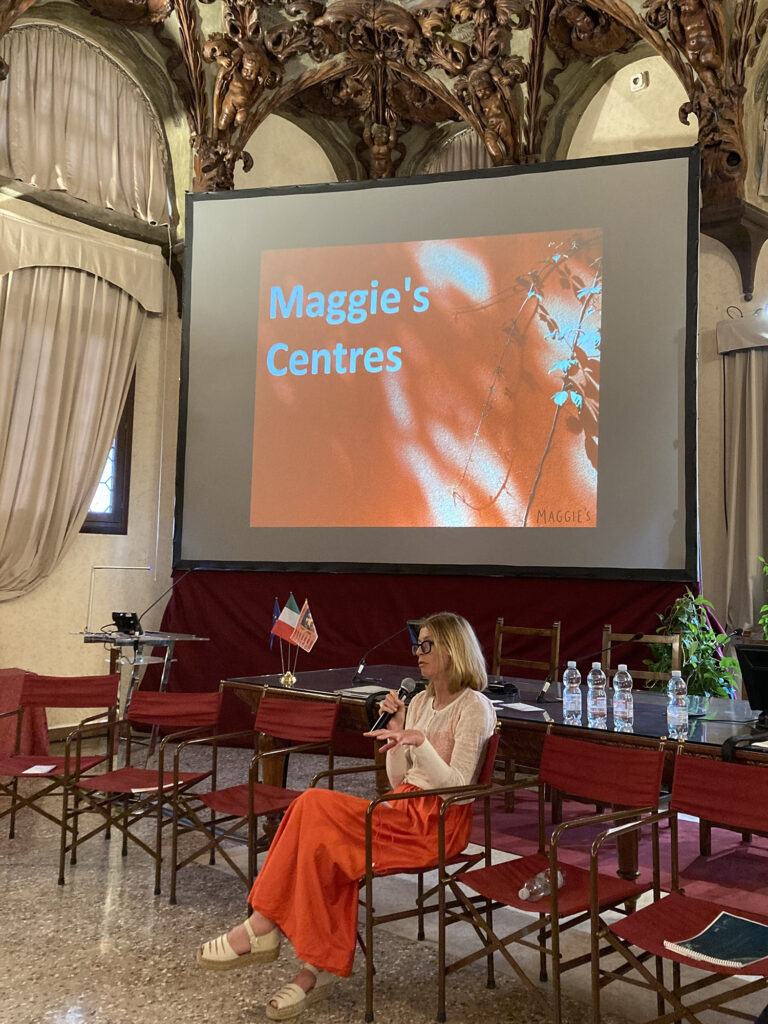The Meeting between Architecture and Nature
The healthcare project of the future
Friday 19 July, 19.00

In the healthcare sector, as scientifically proven, nature plays an important role in creating therapeutic benefits, improving not only physical health, but also mental health by acting, for example, on stress, depression, and the sense of satisfaction. With a historical evolution that dates back to the ancient Greeks and their temples dedicated to Asclepius, the god of medicine – when body and mind were still one and psychological well-being was recognised as a beneficial factor for the body – nature is rightly being reintroduced into the design of future healthcare facilities with a new concept of what a hospital should be. Questioning how the idea of the hospital of the future can take this path, the example of the New Hospital of Cremona becomes emblematic for the role that the building will assume at an urban level. Conceived as a large park connected to the river, this hospital is no longer just a place of care, but becomes a new point of reference for workers and citizens.
The architecture integrates nature into the interior spaces, where natural light and delicate biophilic design contribute to improving people’s well-being. Working on a smaller scale, Maggie’s centres offer the same therapeutic benefits thanks to their unconventional architecture integrated with a multisensory nature; this combination is considered a form of care to support their users, people with cancer. The Therapeutic Gardens for Alzheimer’s patients also contribute to transmitting benefits to their residents who appear more independent, less anxious and, above all, less in need of drugs. In contact with oaks, laurels and rosemary, patients with dementia regain impaired cognitive functions, such as memory and language, and good mood. No longer a facade or a trendy theme, whose sustainability is not only ‘green’ but has to do with the efficiency of buildings, nature represents a new vision for Italian stakeholders who can now bring their contribution to other countries as well. Examples of this include the Emergency hospital in Uganda or the new hospitals built entirely of wood in Greece, where sustainability and use of natural materials go beyond the idea of flexibility, to embrace the idea of beauty and lightness promoted by Gino Strada.
SPEAKERS
Dina Battisto PhD teaches at Clemson University, School of Architecture, in the professional degree programme and in the degree programme in Architecture + Health and co-directs the M.S. and the PhD programmes. An expert in POE, she has developed the performance of structures. As a principal investigator, she has won numerous national design awards. She recently co-edited the book Architecture and Health: Guiding Principles for Practice (2019) and is now completing the volume Developing a Performance Framework for Architects, Routledge 2024.
Nicola Boscoletto is a founding member of the Giotto social cooperative (1986), of which he was president for years. With a degree in Forestry Sciences gained at the University of Padua, he is currently president of the Giotto social consortium of Padua founded in 2004 to respond more completely and precisely to two sectors of social hardship: prison and physical, mental and psychophysical disability.
Mario Cucinella is the founder of MCA (Paris, 1992), a firm composed of over 100 professionals specialised in architectural design that integrates environmental and energy strategies. To this end, the studio uses an internal R&D department that studies sustainability issues by adopting a holistic approach. In 2015, Cucinella founded the postgraduate program SOS – School of Sustainability while, in 2018, he curated the Italian Pavilion at the 2018 Venice Biennale with the exhibition Arcipelago Italia. The importance of his work has been recognised with the International Fellowship of the RIBA (2016) and with the Honorary Fellowship of the AIA (2017). He is the author of numerous publications. On 20 June 2024, MCA received the Compasso d’Oro ADI Award for the project Museo d’Arte Fondazione Luigi Rovati.
Maurizio Milan is the founder of Milan Ingegneria S.r.l. and Buro Milan, an engineering company based in Venice and Milan. Consultant to well-known international architects, he has done extensive research on prefabricated concrete and steel structures built all over the world. Chair in the post-graduate master’s degree in Structural Engineering at the Polytechnic of Milan, since 2007 he has been a professor of structural engineering at the University Iuav of Venice. In 2021 he inaugurated the new EMERGENCY hospital in Entebbe, Uganda, whose containment of energy consumption – which also involves the reuse of materials, supply of construction elements on site and minimisation of transport and handling on site – plays a fundamental role for sustainability.
Dame Laura Lee has been CEO of Maggie’s for 27 years, helping to transform the first Maggie’s Centre in Edinburgh into a growing network of centres spanning the UK and overseas. Her tireless work to ensure people affected by cancer have access to the emotional support they need alongside their medical care was recognised when she was made a Dame in the Queen’s Birthday Honours in 2019.
Maurizio Dianese (born 11 February 1954 in San Donà di Piave) is an Italian journalist and writer.
